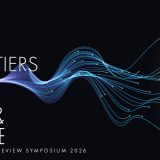
Fowler LL.M. Students Have Private Meeting with Nobel Peace Prize Winner Elie Wiesel
May 1, 2014
Two LL.M. students from Afghanistan had a private meeting with Nobel Peace Prize winner Elie Wiesel during his annual visit to Chapman University in April 2014. His annual one-week visit marks the fourth year of his five-year appointment as a Distinguished Presidential Fellow at the university. While on campus, Wiesel met with students and faculty and spoke in various classes.
The Chapman University Dale E. Fowler School of Law students Maryam Abdulhaq
(LL.M. ’14)
and Nooria Sallam
(LL.M. ’14)
were invited by Professor Wendy Seiden, who supervises them at the
Fowler School of Law Bette and Wylie Aitken Family Violence Clinic
, to meet with Elie Wiesel during her session as a faculty member. Professor Seiden recommended the students because, like Wiesel, they are also human rights activists in their home country of Afghanistan.

(left to right) Nooria Sallam, Elie Wiesel, Maryam Abdulhaq and Professor Wendy Seiden
During the meeting, Maryam asked Wiesel how to write a book because she plans to write about human rights in Afghanistan. She said there are not enough sources about the human rights abuses against women and children and hopes that her book would become a source on this topic. Nooria shared that she wants to eliminate the harmful traditional customs in her province and all over Afghanistan. Wiesel noted that this poses a problem because it is a religious and political issue – “You have to work with other international organizations to get this done,” he said. He recommended that she ask other countries to support her in this cause, noting, “It is not easy and it is going to be a long way but you need to start.”
At the conclusion of the meeting, Wiesel promised he would continue working with the students because what he went through is similar to what is happening in their country today. He even gave them his email for future contact. “I didn’t want to leave, I wanted to keep talking. I was so happy talking with him,” Nooria said. “Meeting with him gave me a new inspiration to fight women’s rights in Afghanistan. After speaking with him I realized it was not impossible and I should continue,” Maryam said.
“Nooria and Maryam represent the third year of Fowler Law’s cooperation with the Public-Private Partnership for Justice Reform in Afghanistan, and it was wonderful that these young women’s rights activists had a chance to meet with such a historic human rights icon,” said
Ronald Steiner
, Director of Graduate Legal Education.
Despite having attended the same university in Afghanistan, these women met for the first time in the
LL.M. program at Fowler School of Law.
About Maryam Abdulhaq
Maryam studied law in Afghanistan and graduated from Kabul University School of Law in 2010. Before coming to Chapman, she worked for about two and a half years in law, human rights. She also taught at a private university for one year, teaching law, financial law and fundamental principles of law. Because there is a shortage of female lawyers in Afghanistan, they are encouraged to teach. In the future Maryam wants to continue teaching, writing books and fighting for human rights.
About Nooria Sallam
Nooria studied law in Afghanistan and also graduated from Kabul University School of Law in 2011. She worked for more than one year in law with human rights and women’s rights. While studying, Nooria volunteered for the United Nations on a youth advisory panel. Her plan is also to work for and increase legal awareness for women’s rights. “There are so many obstacles in our way but at least we want to start something,” she said.
About Elie Wiesel
Elie Wiesel is a Nobel Peace Prize winner, best-selling author, Holocaust survivor and global leader in human rights advocacy. Wiesel authored the international bestseller
Night
, a memoir of his experiences in the Auschwitz, Buna and Buchenwald concentration camps, and more than 60 other books. He received the Nobel Peace Prize in 1986 for his work as a “messenger to mankind” of “peace, atonement and human dignity.” Wiesel is on the faculty of Boston University where he has taught since 1976 and is the Andrew W. Mellon Professor in the Humanities. He first visited Chapman University in April 2005, when he took part in dedication ceremonies for the university’s Sala and Aron Samueli Holocaust Memorial Library.

